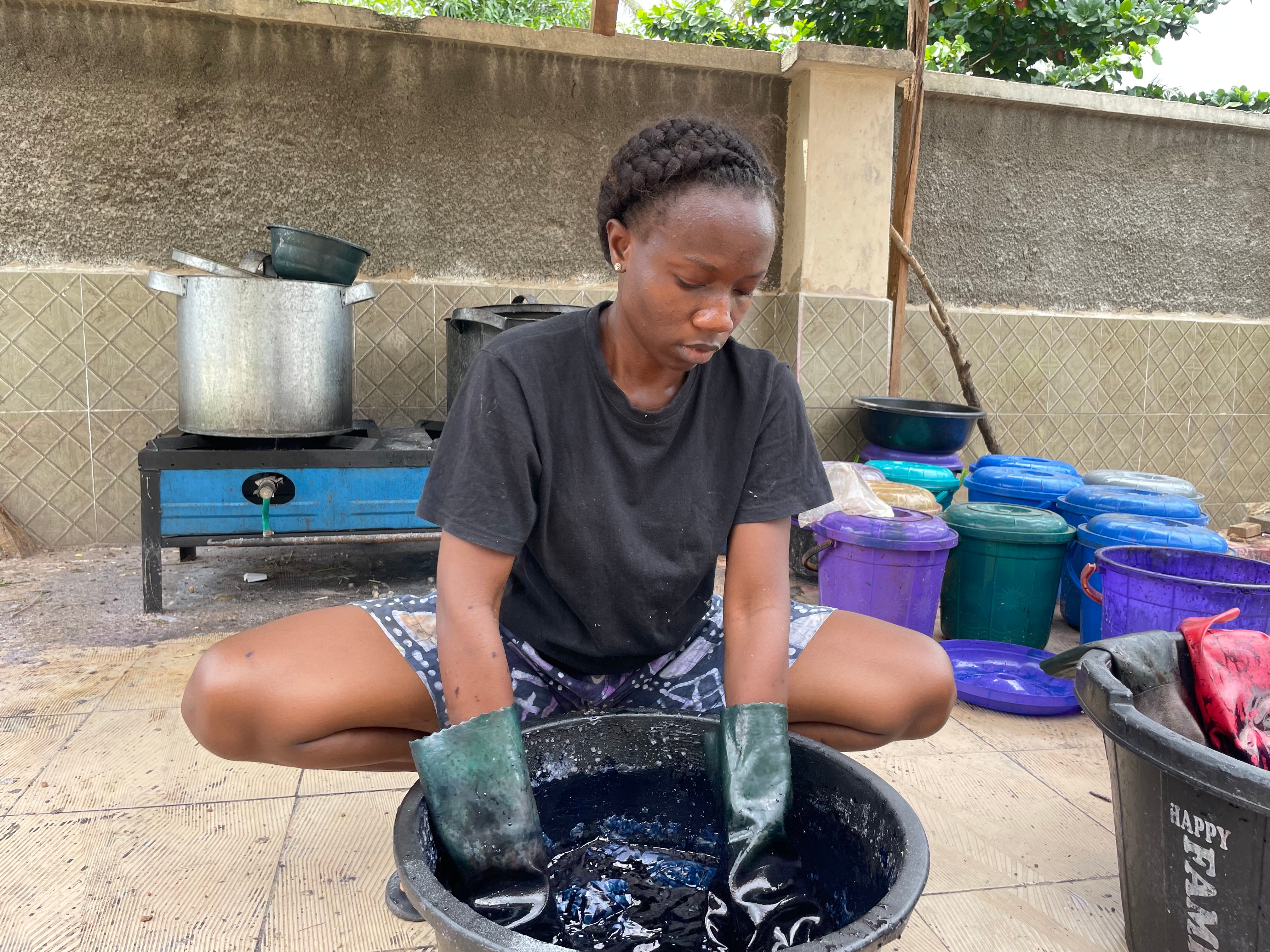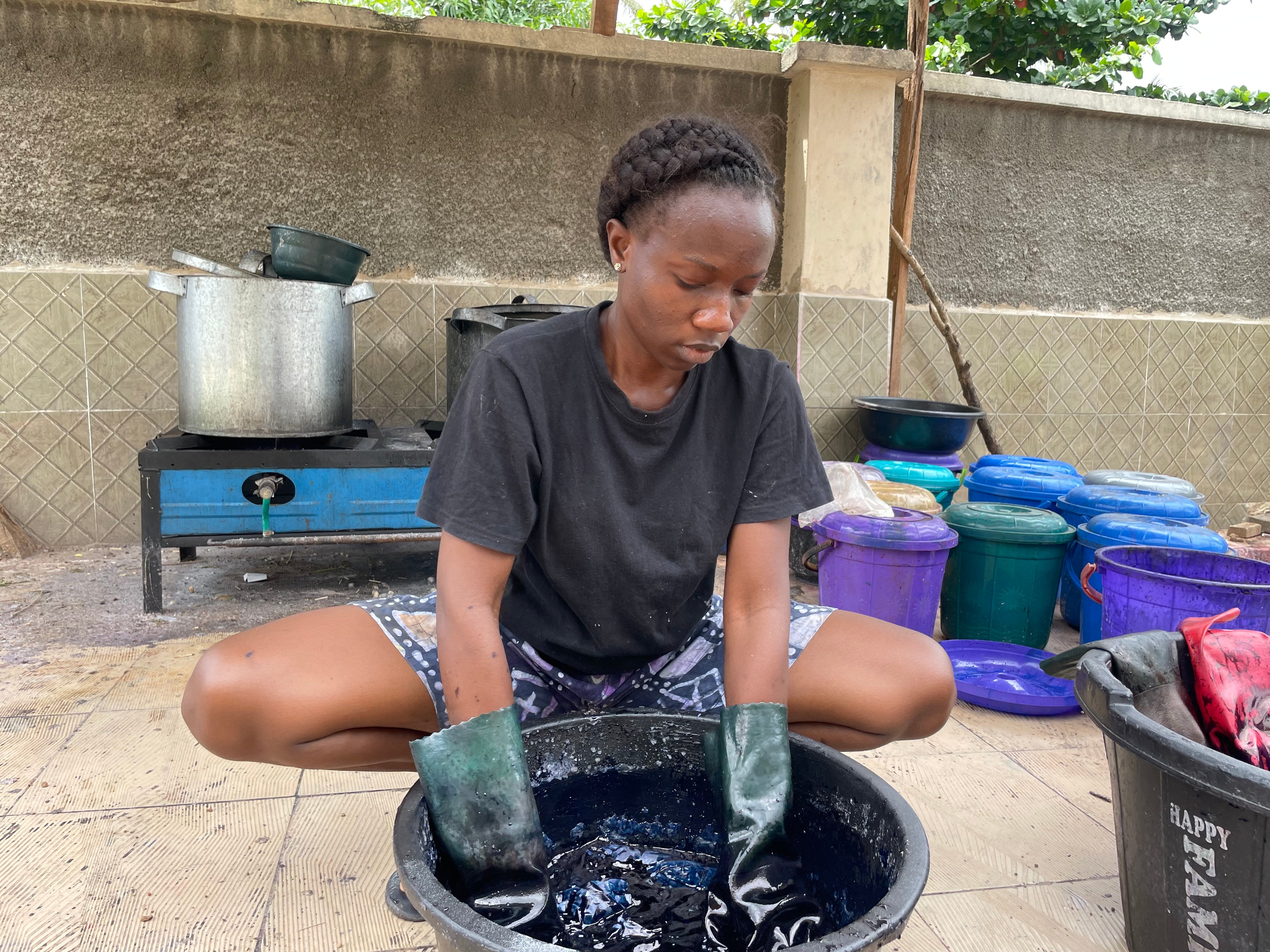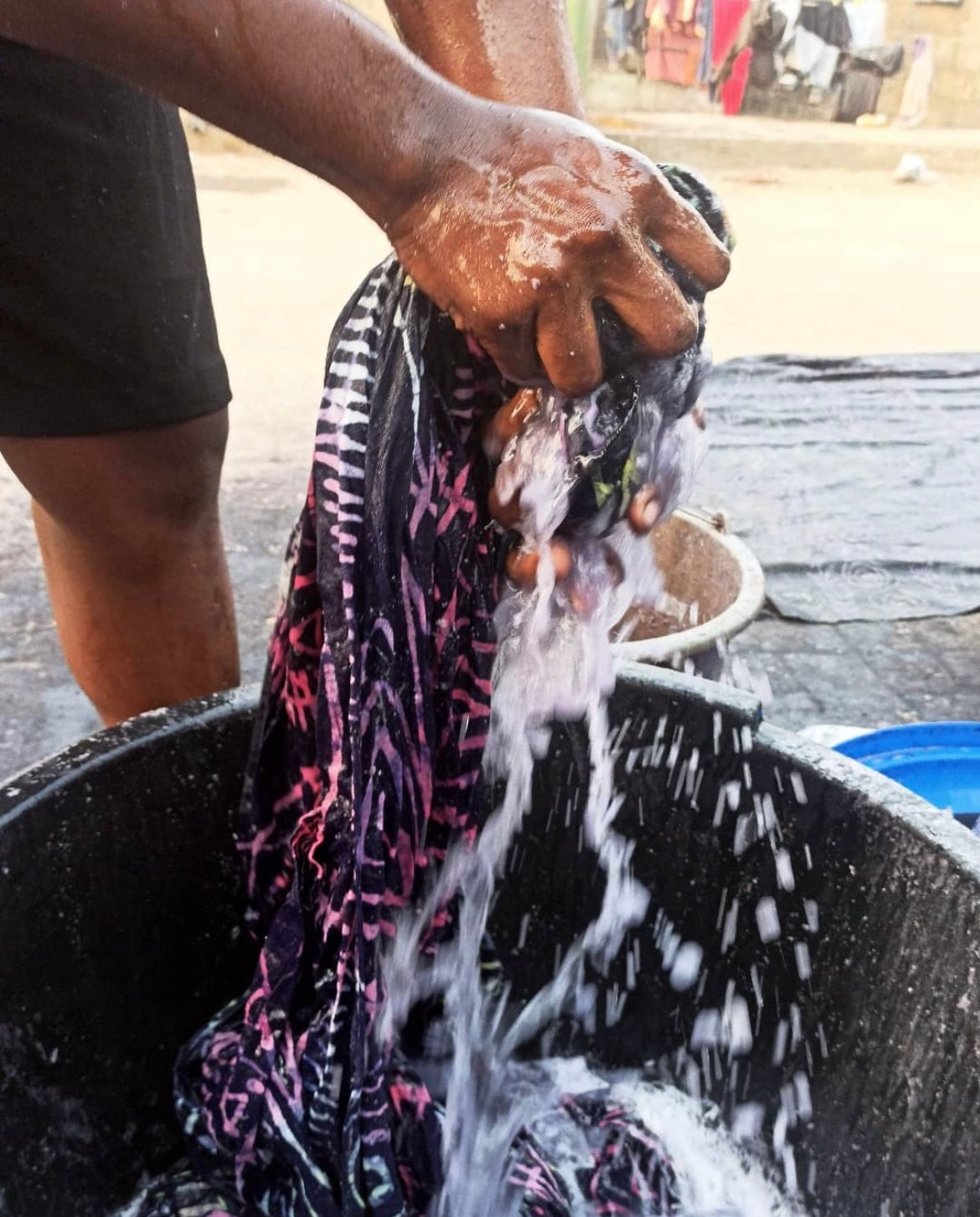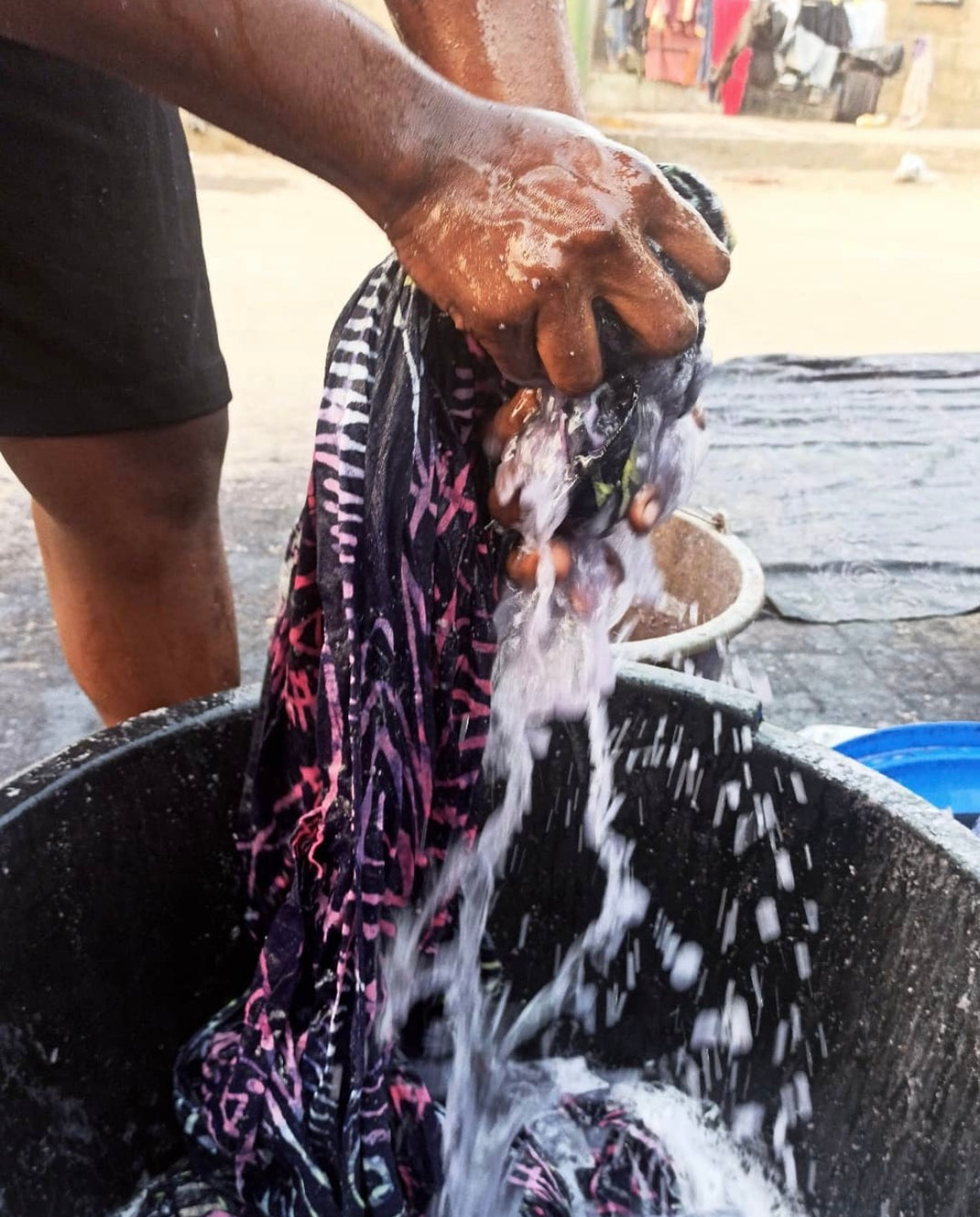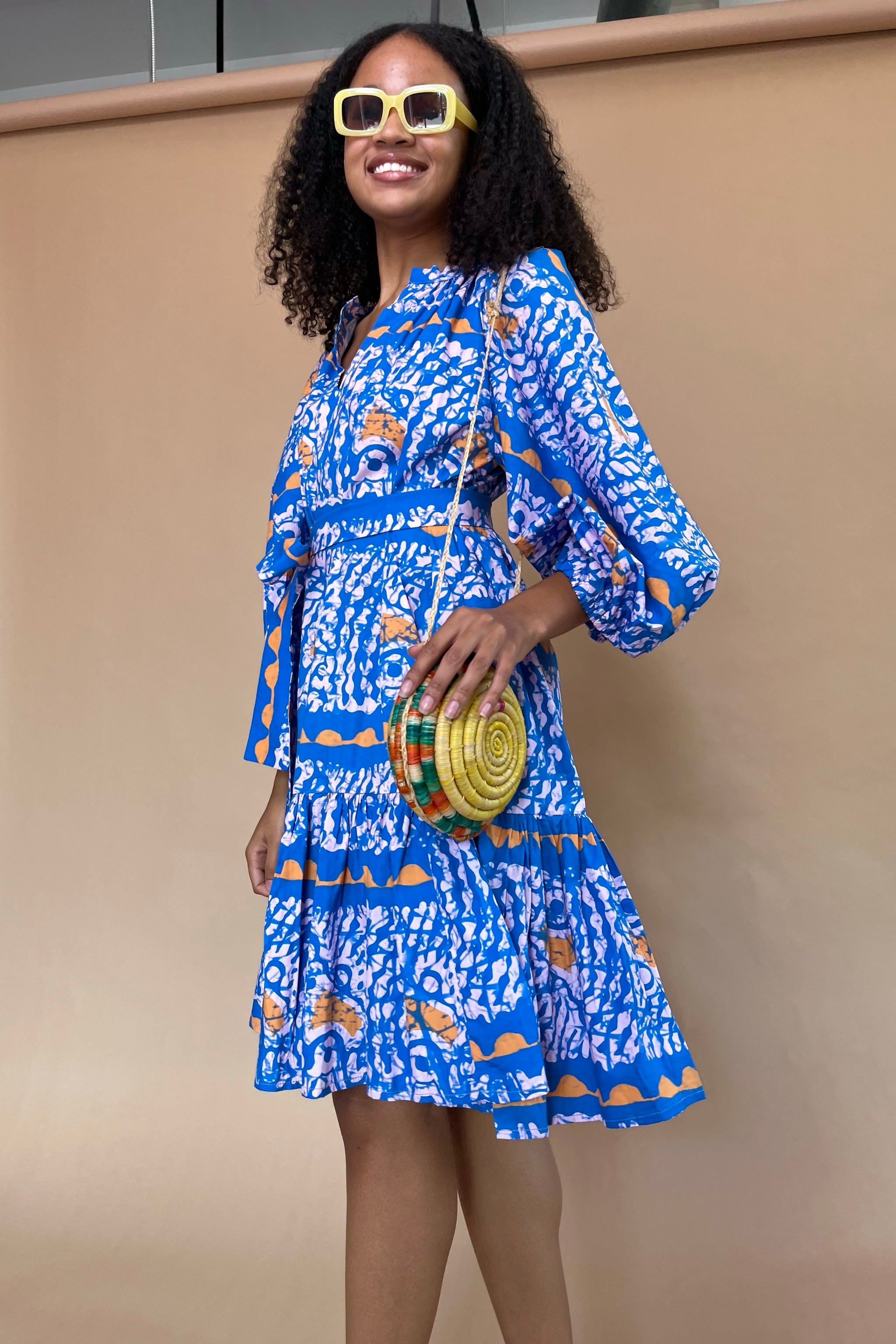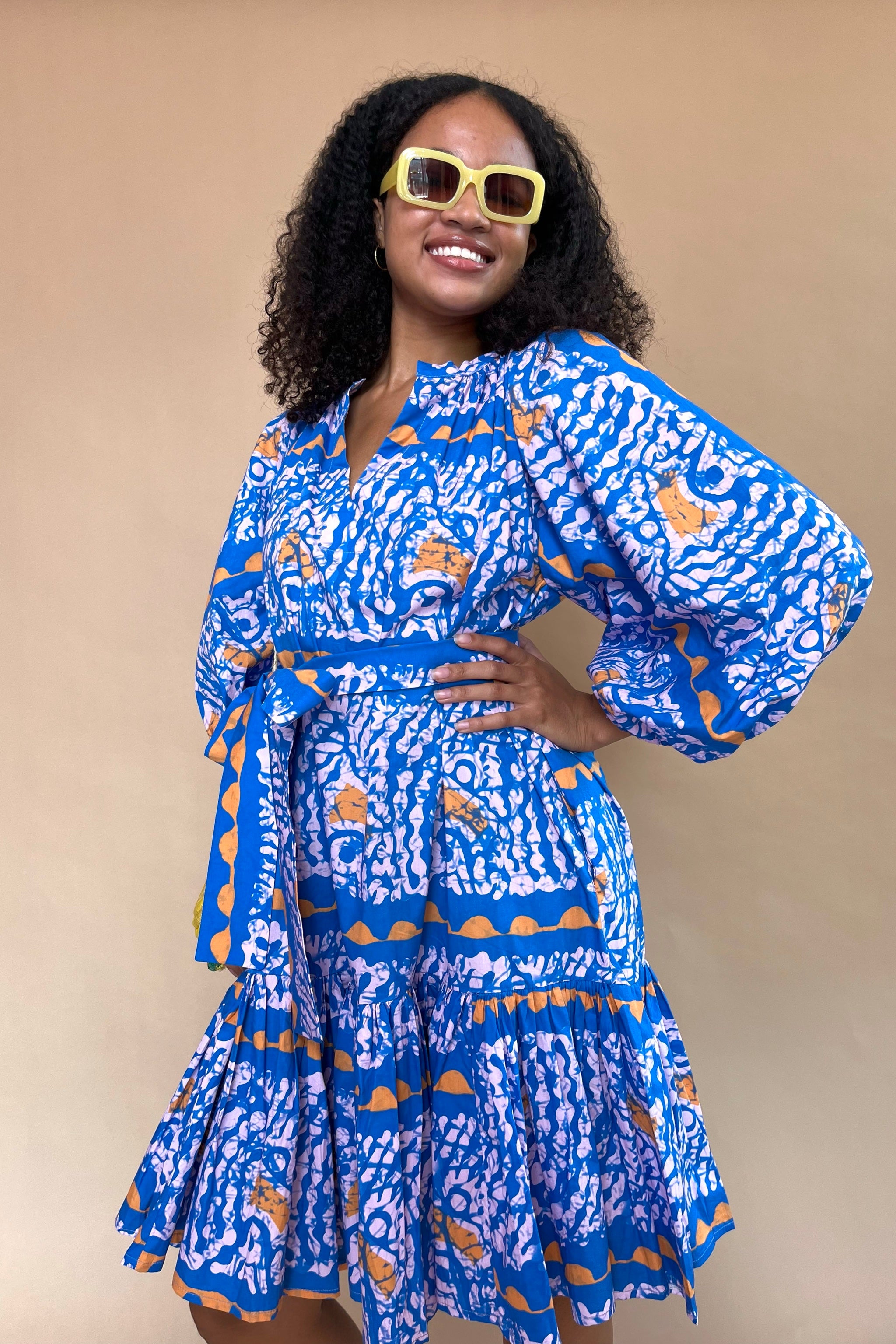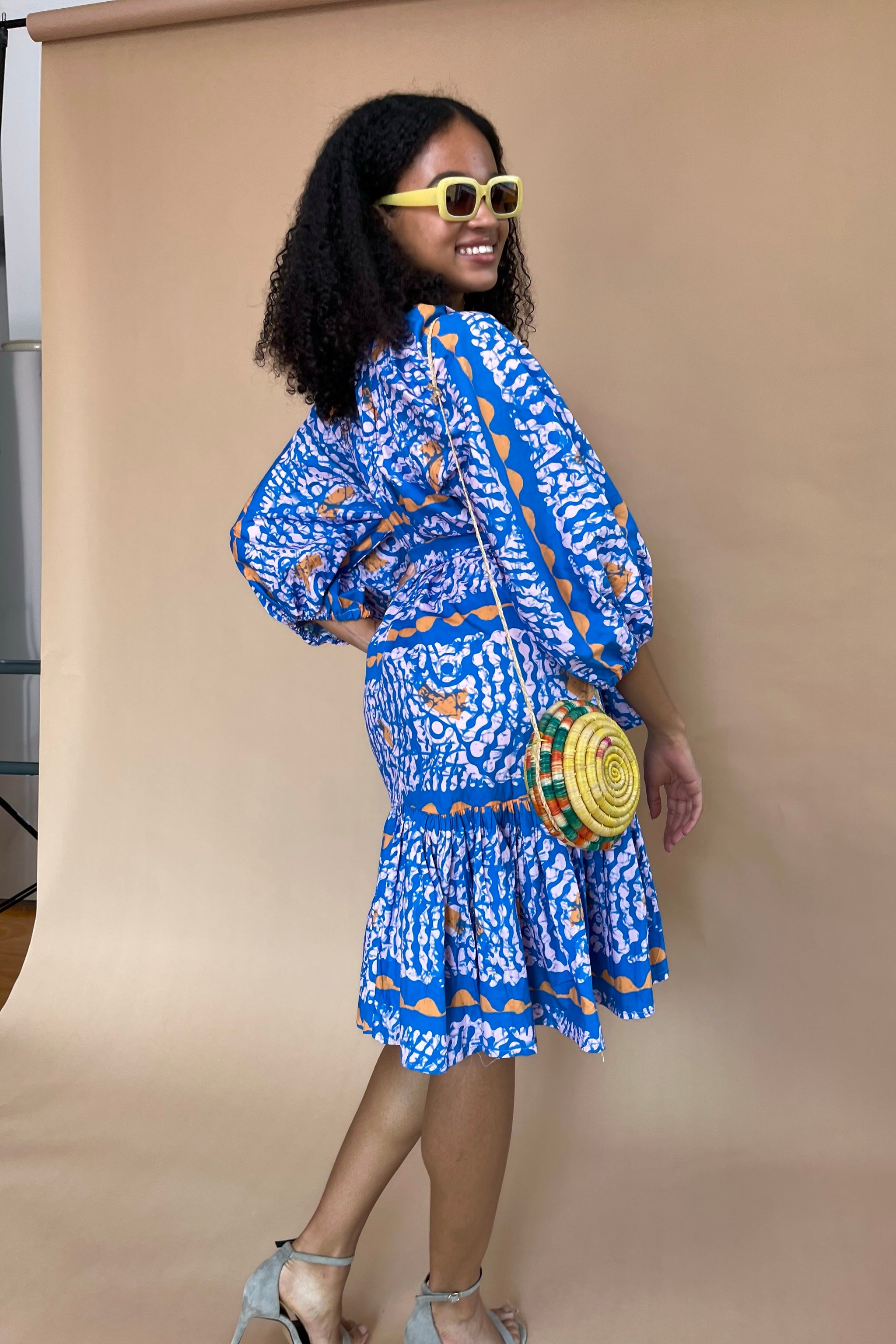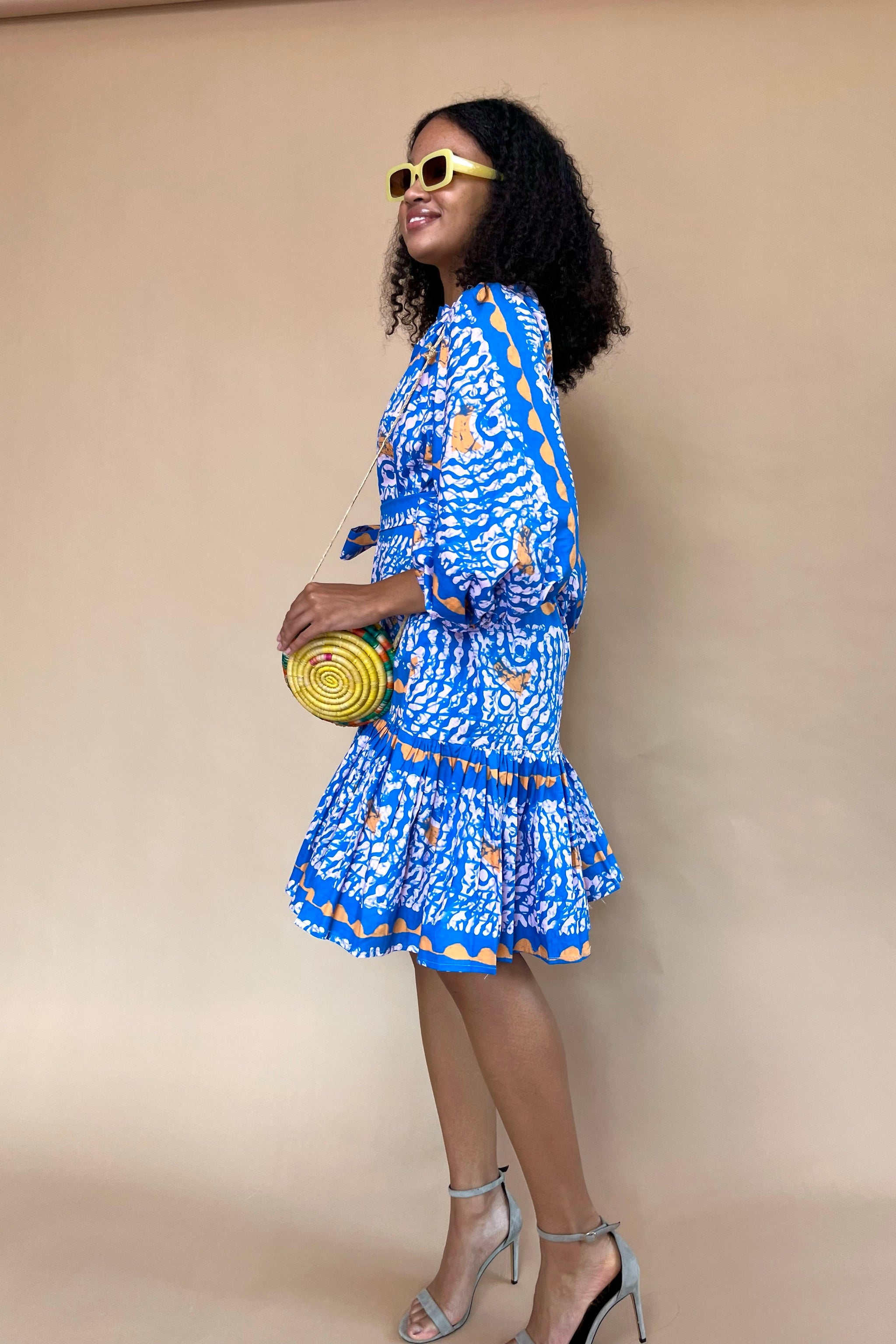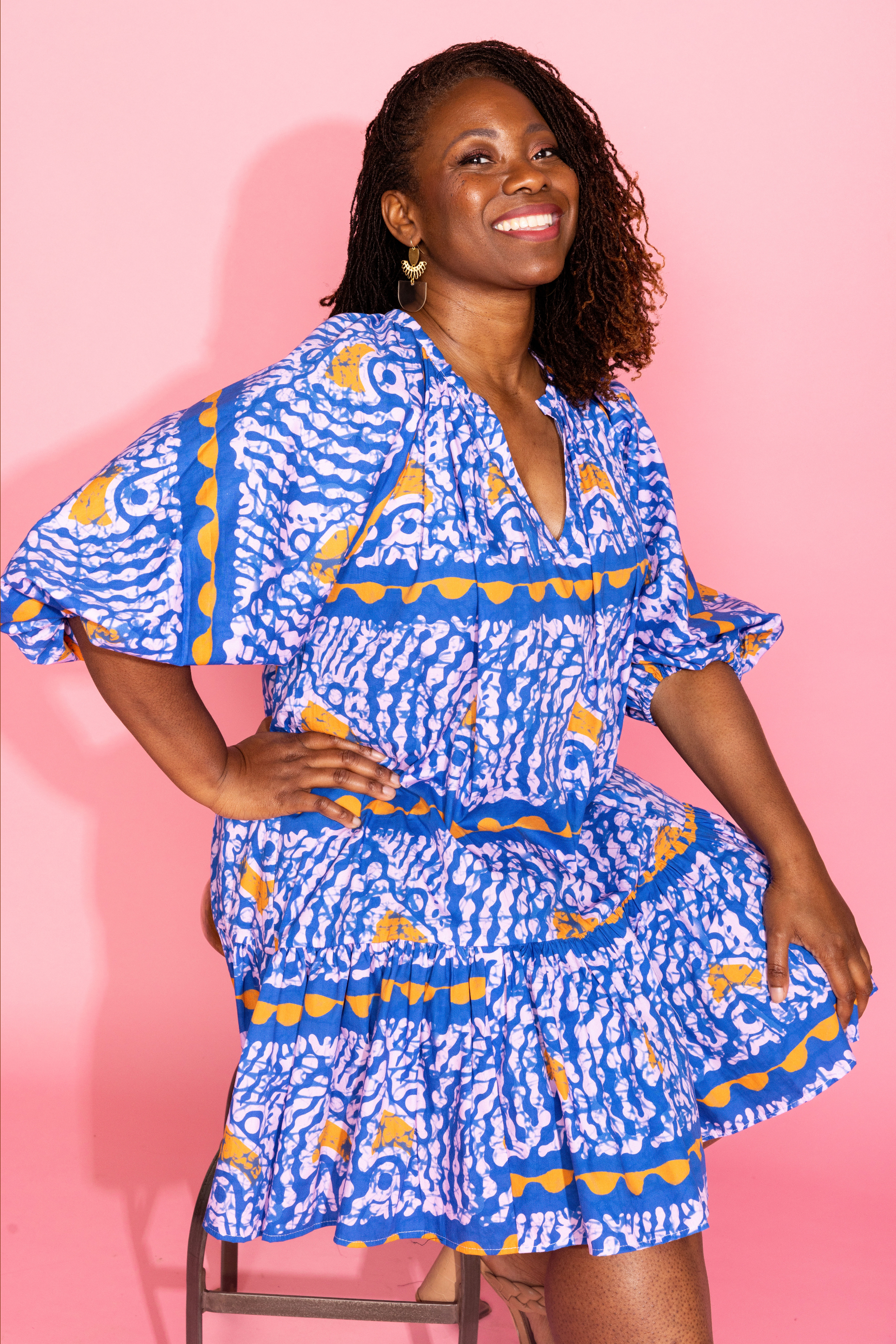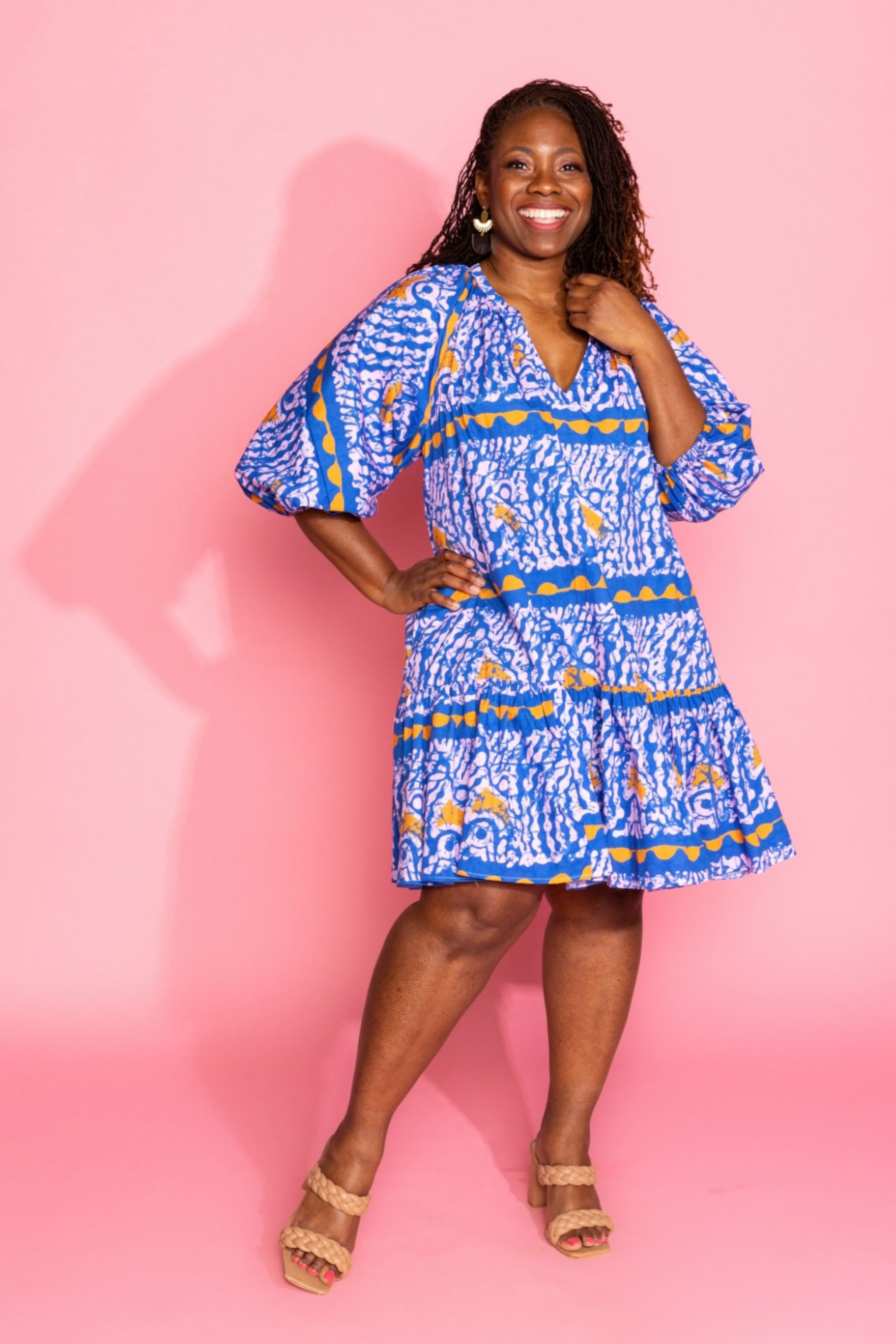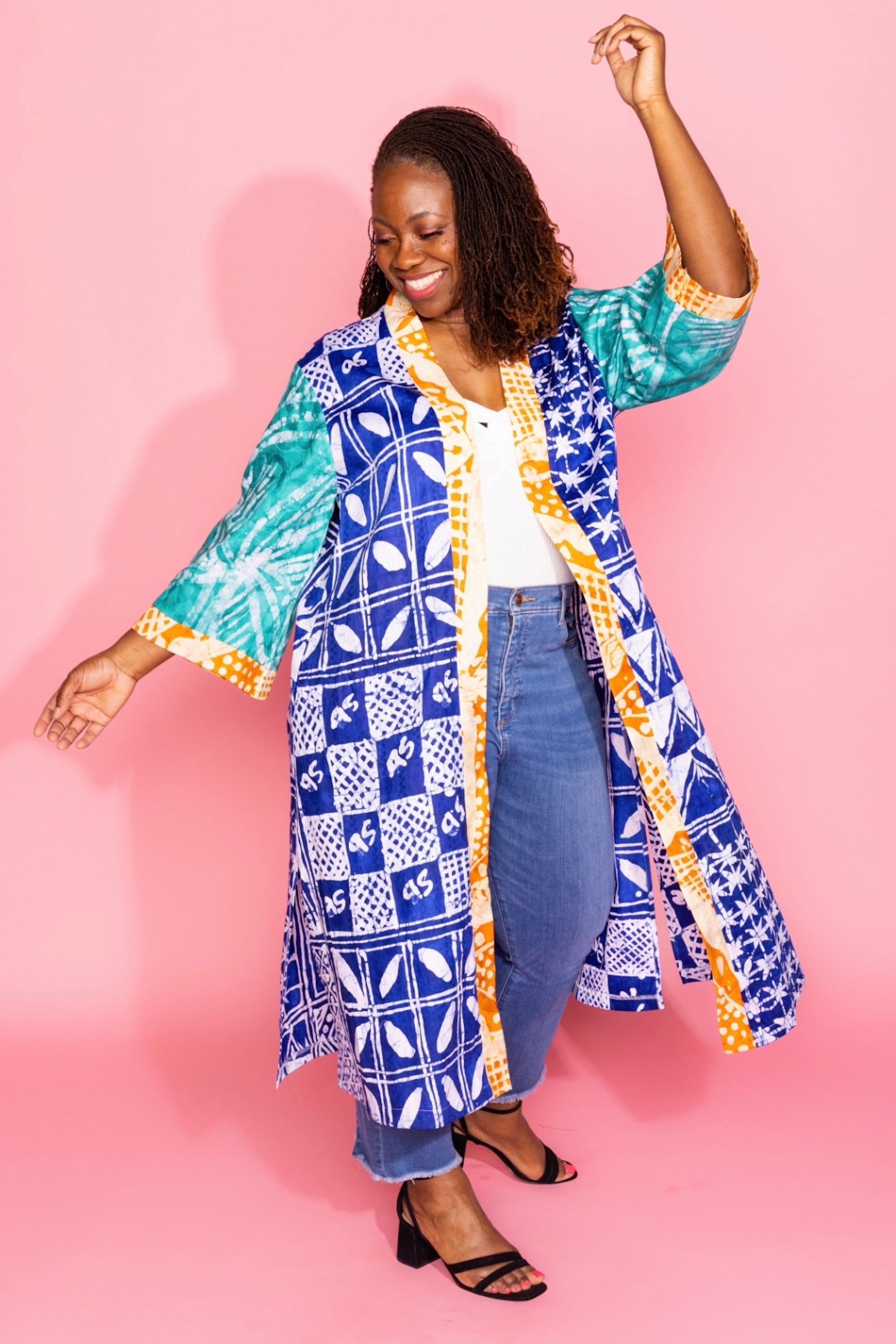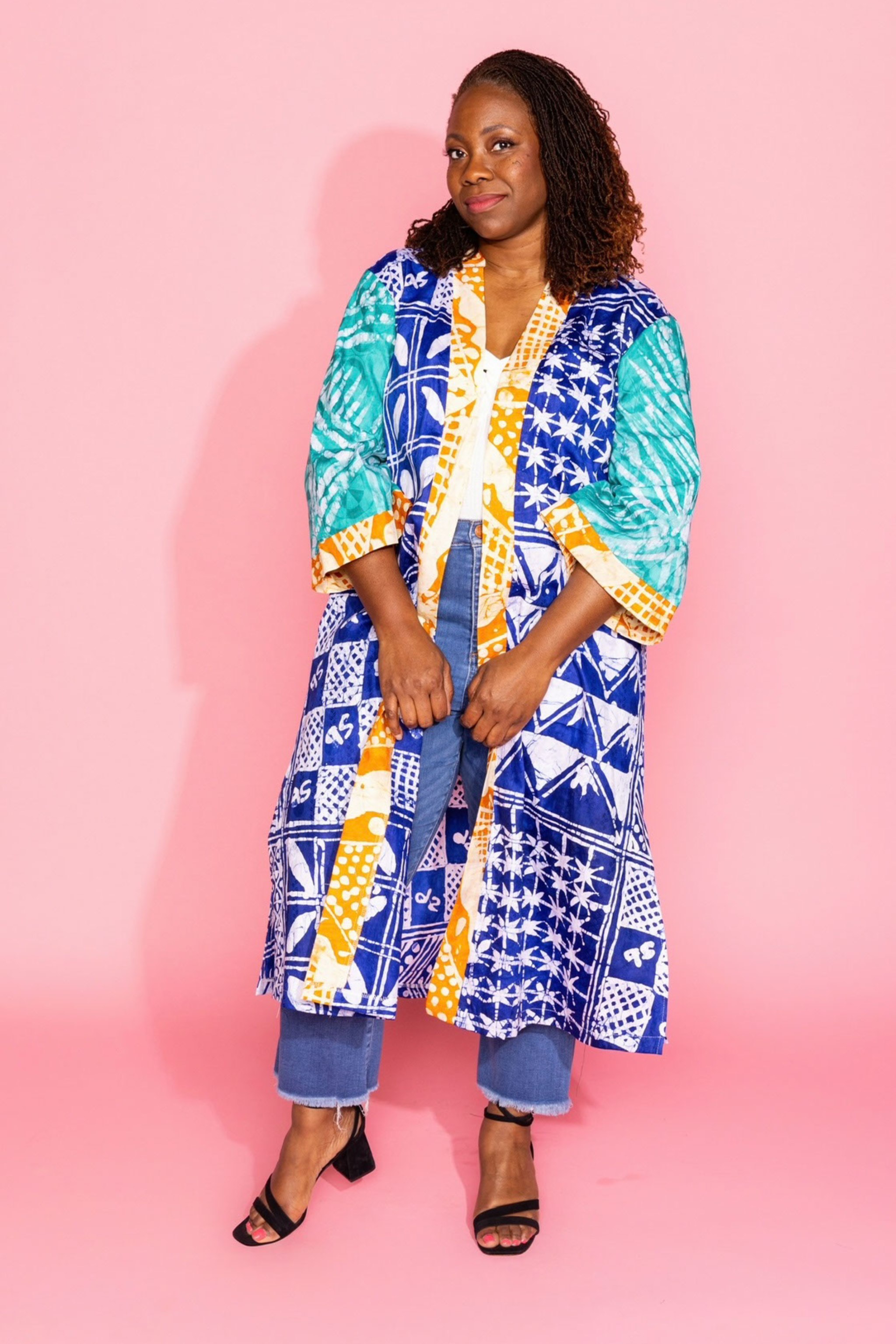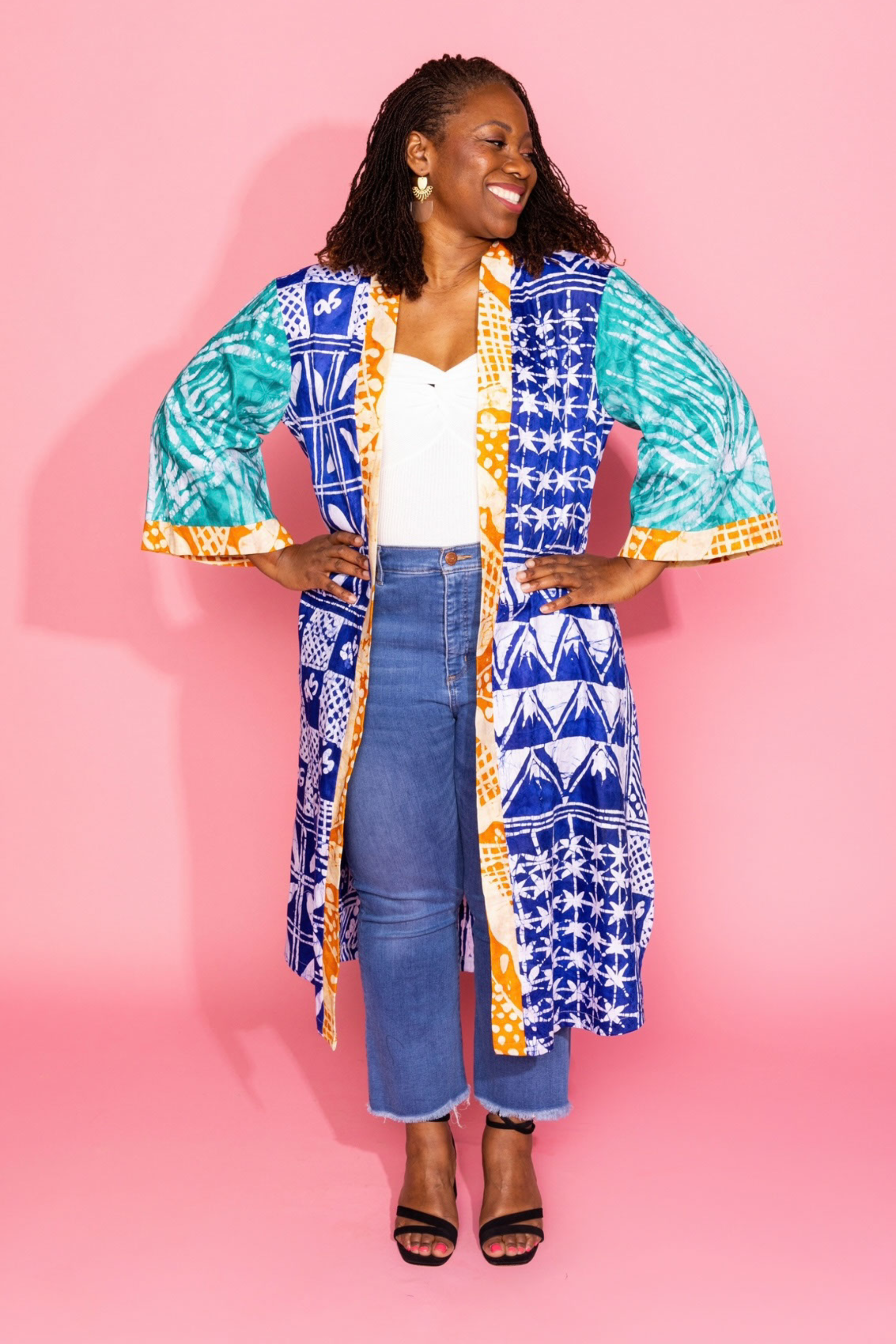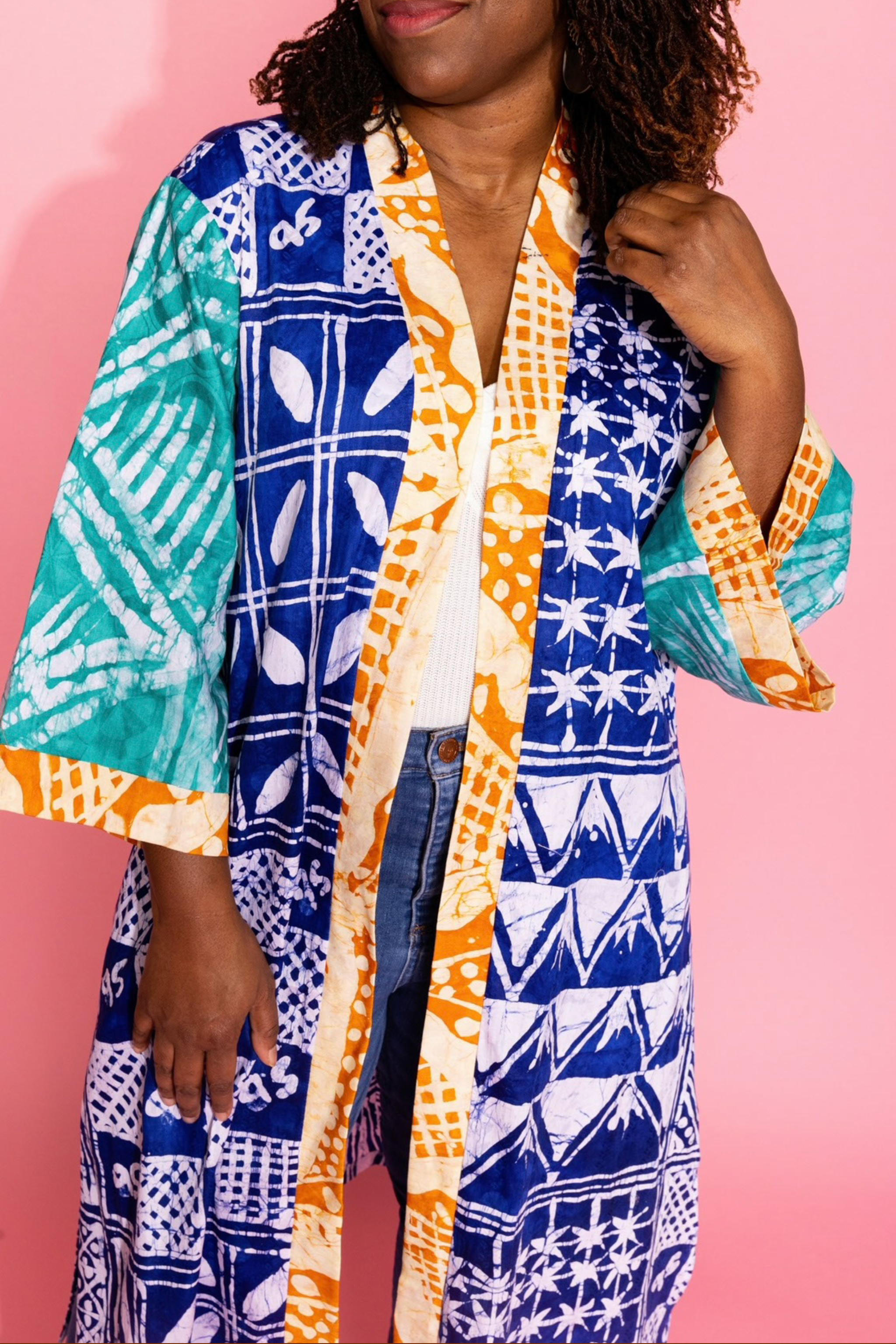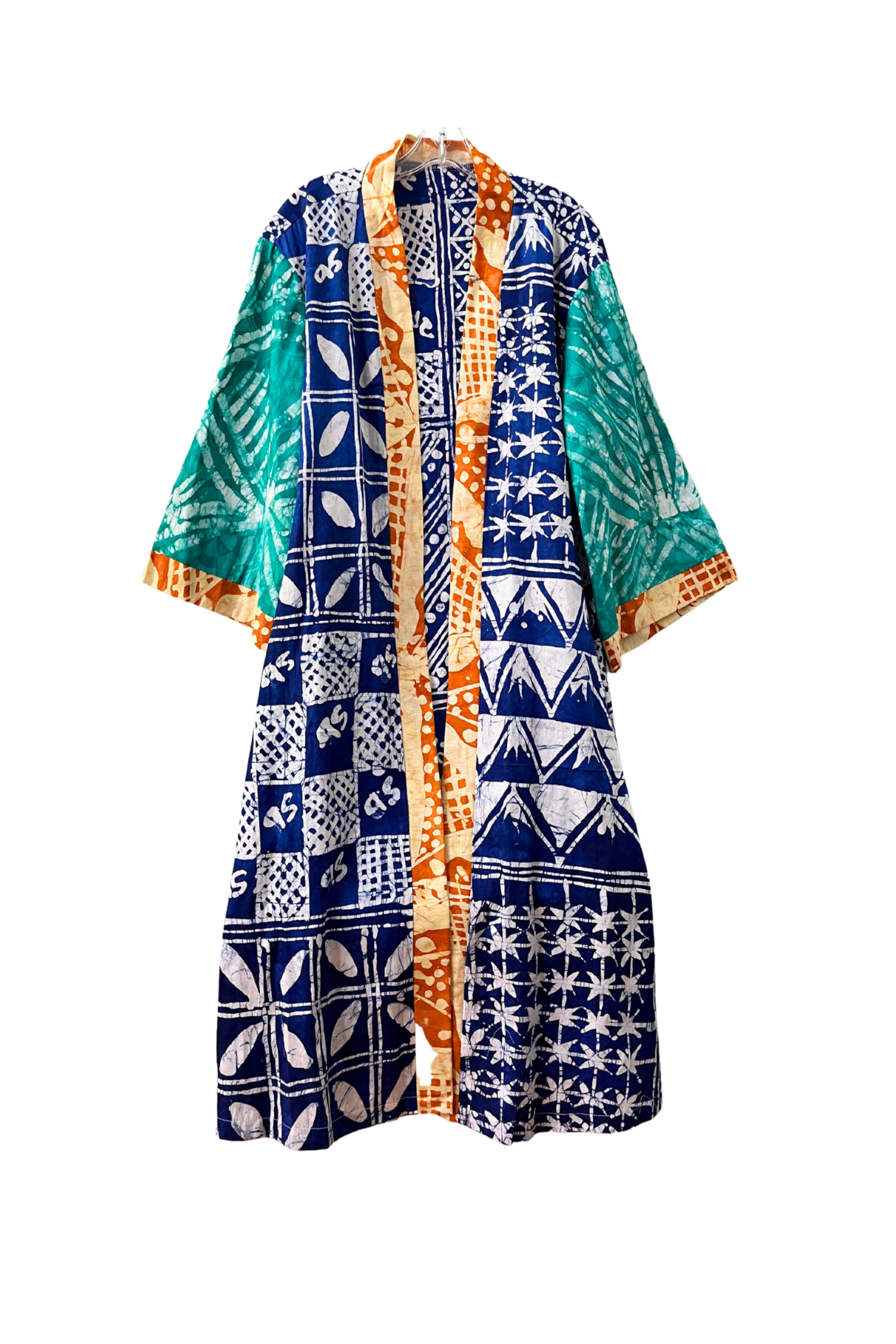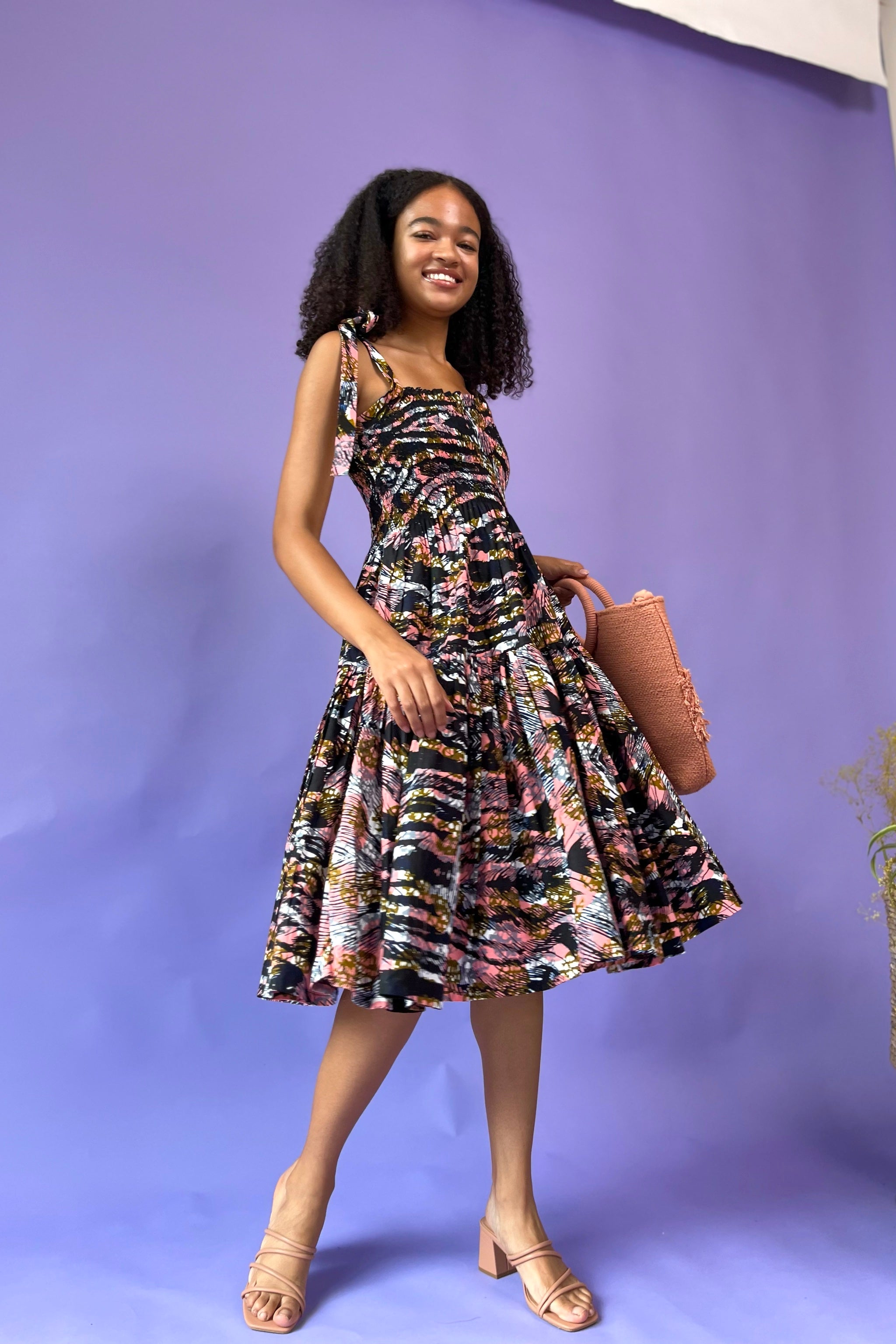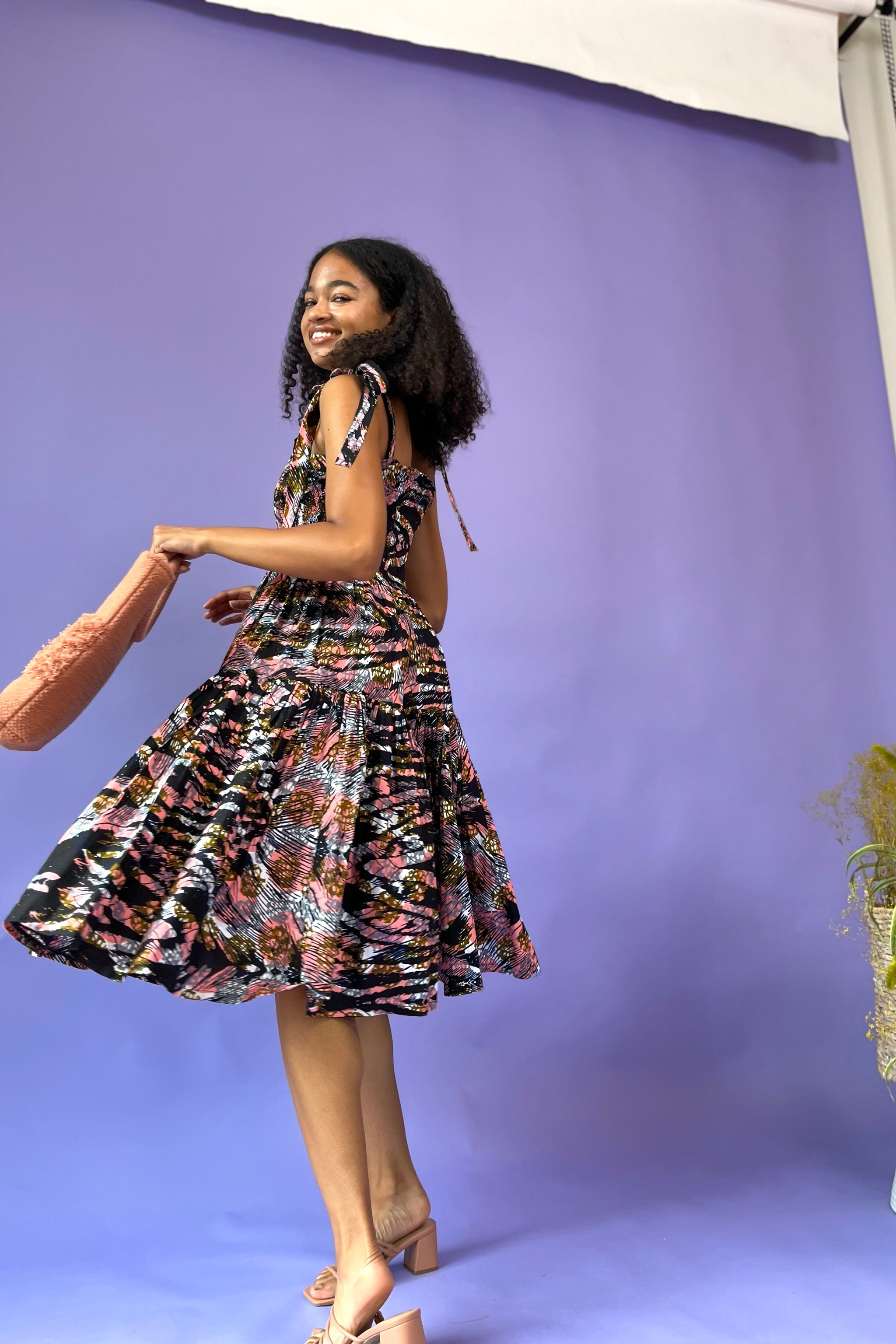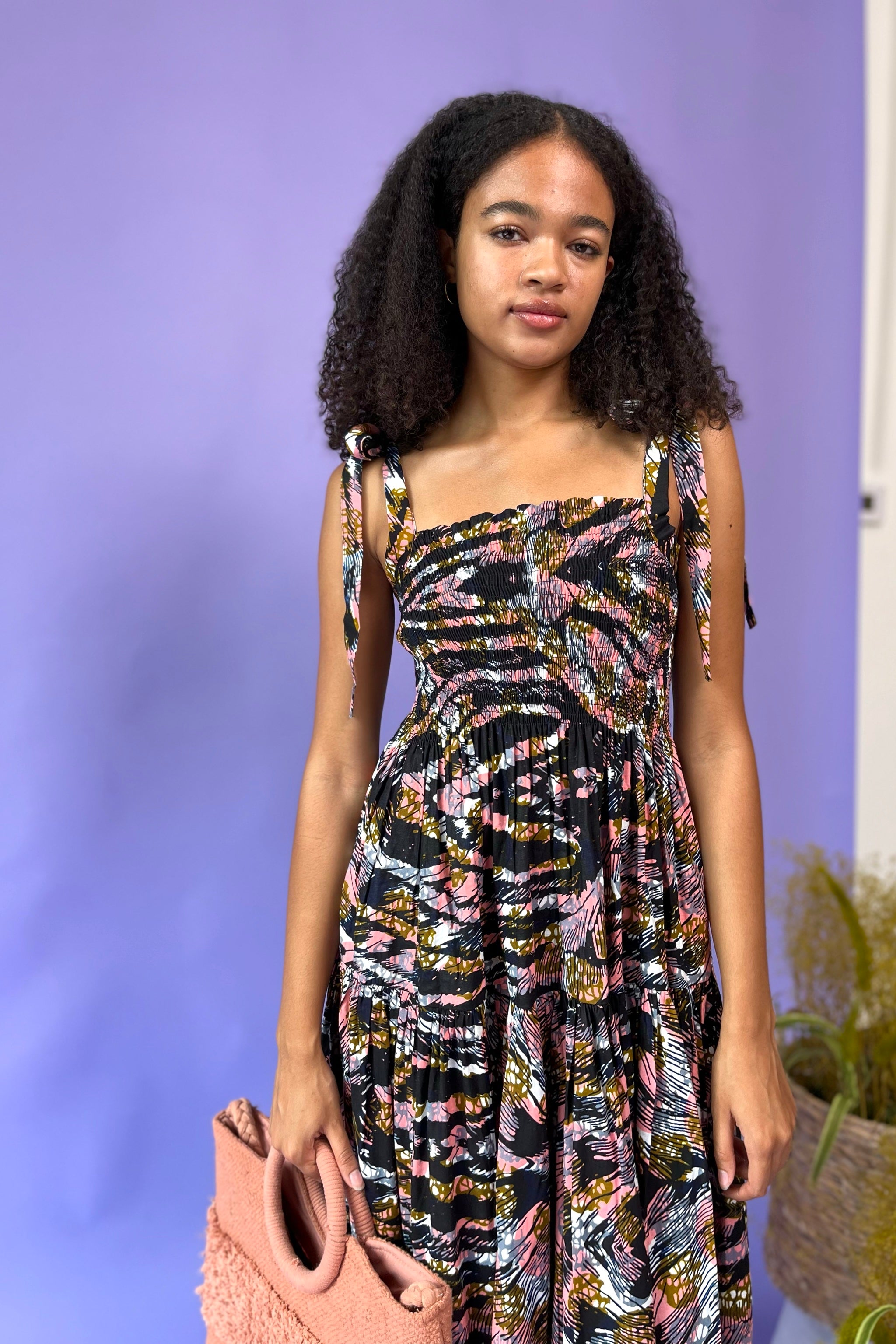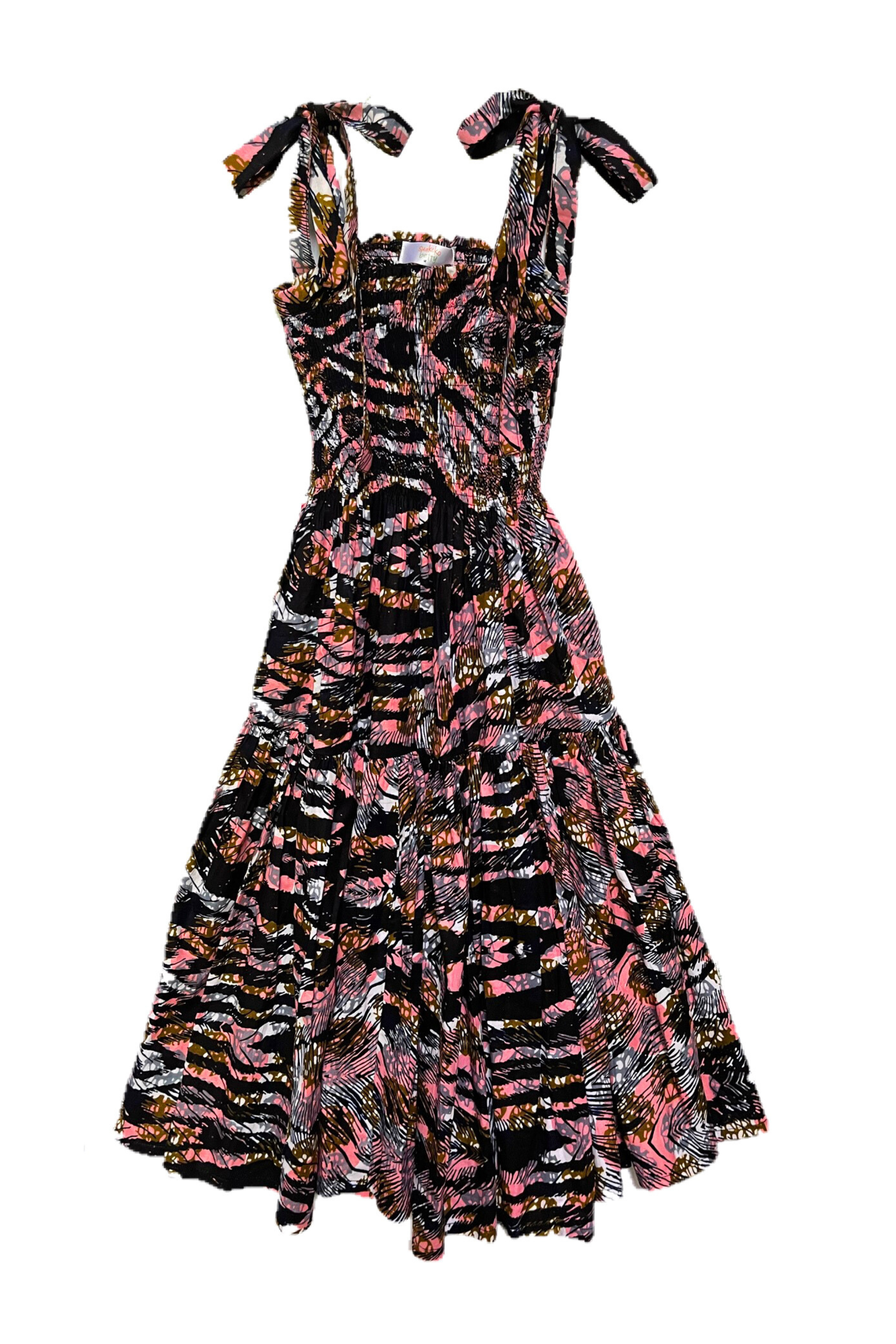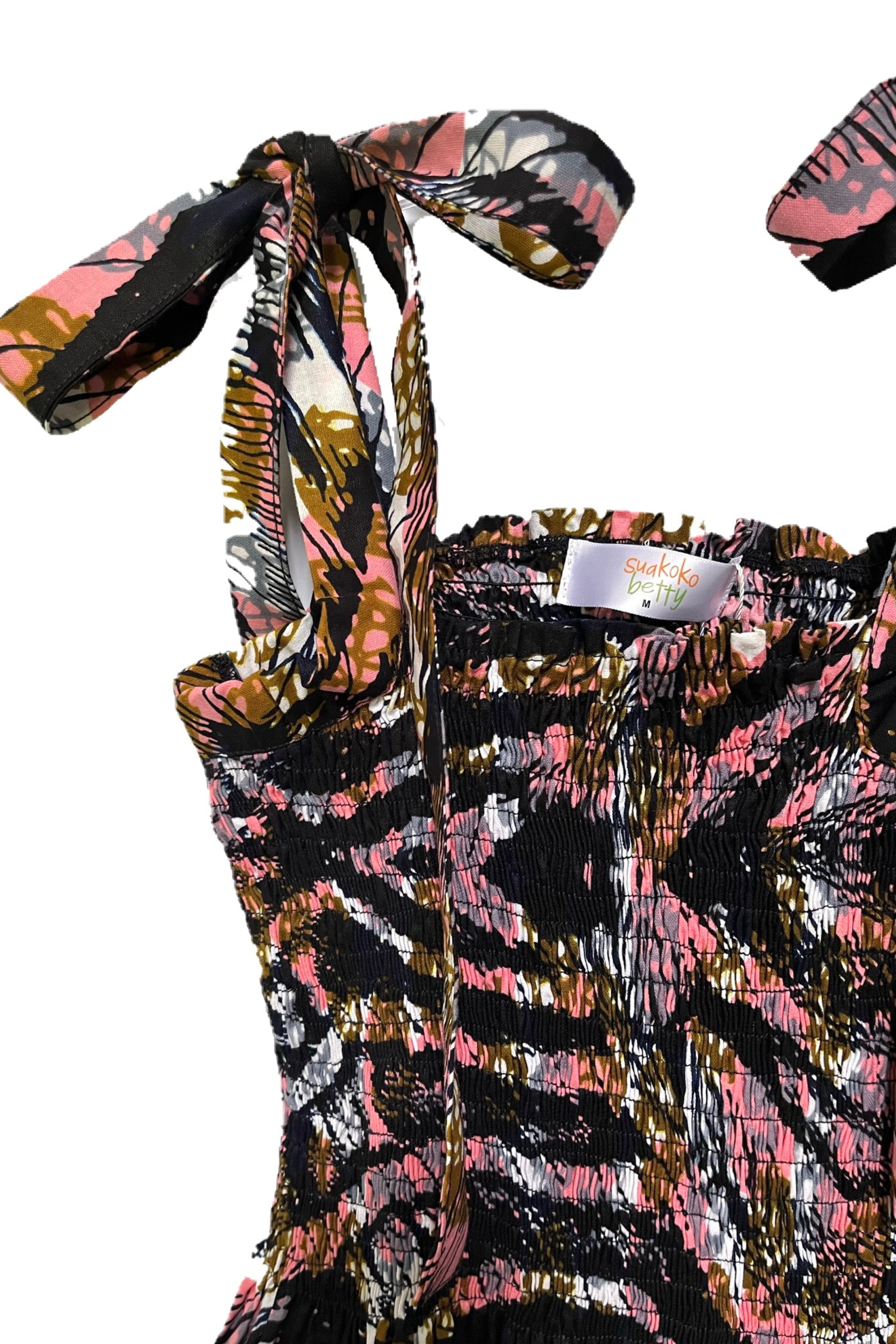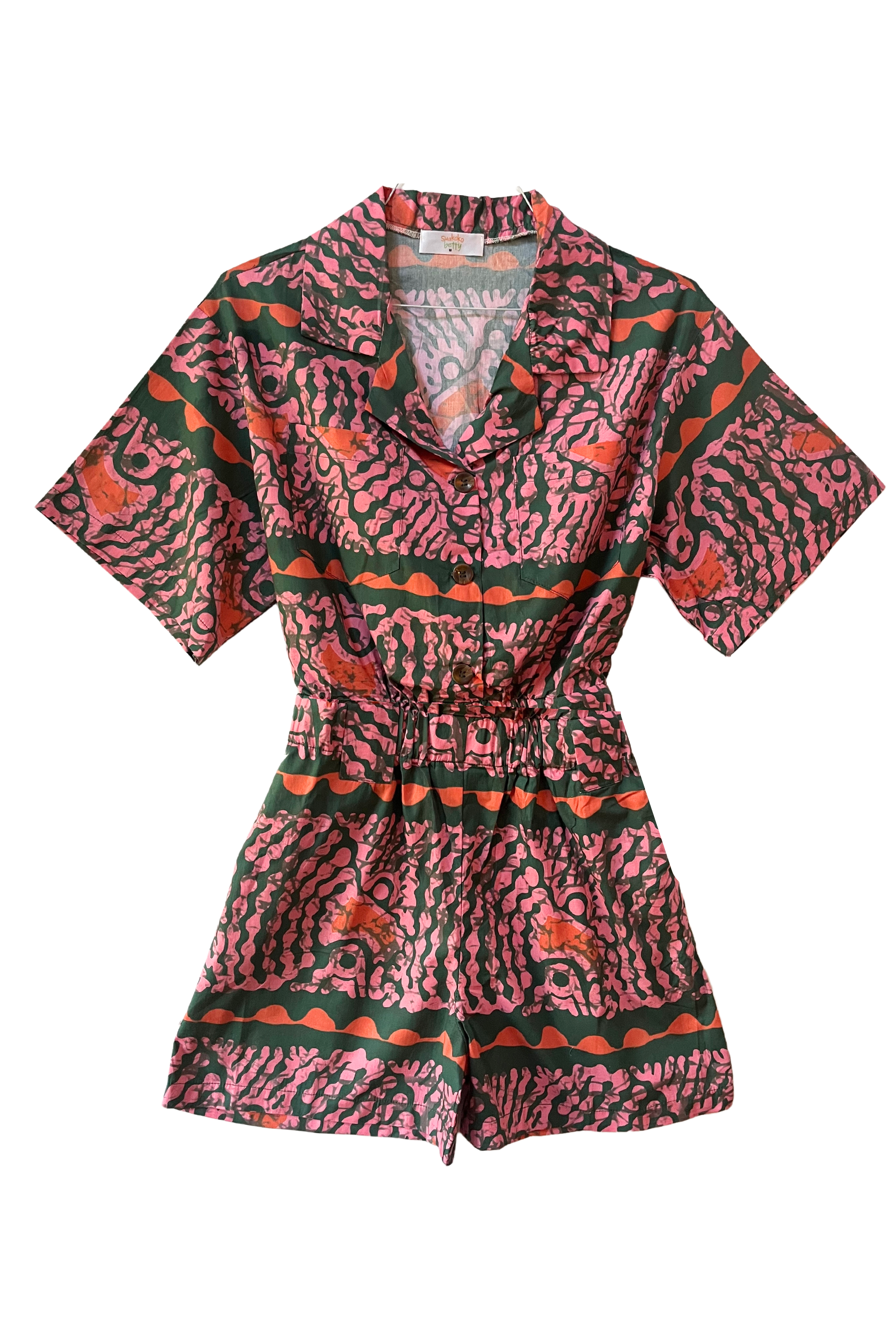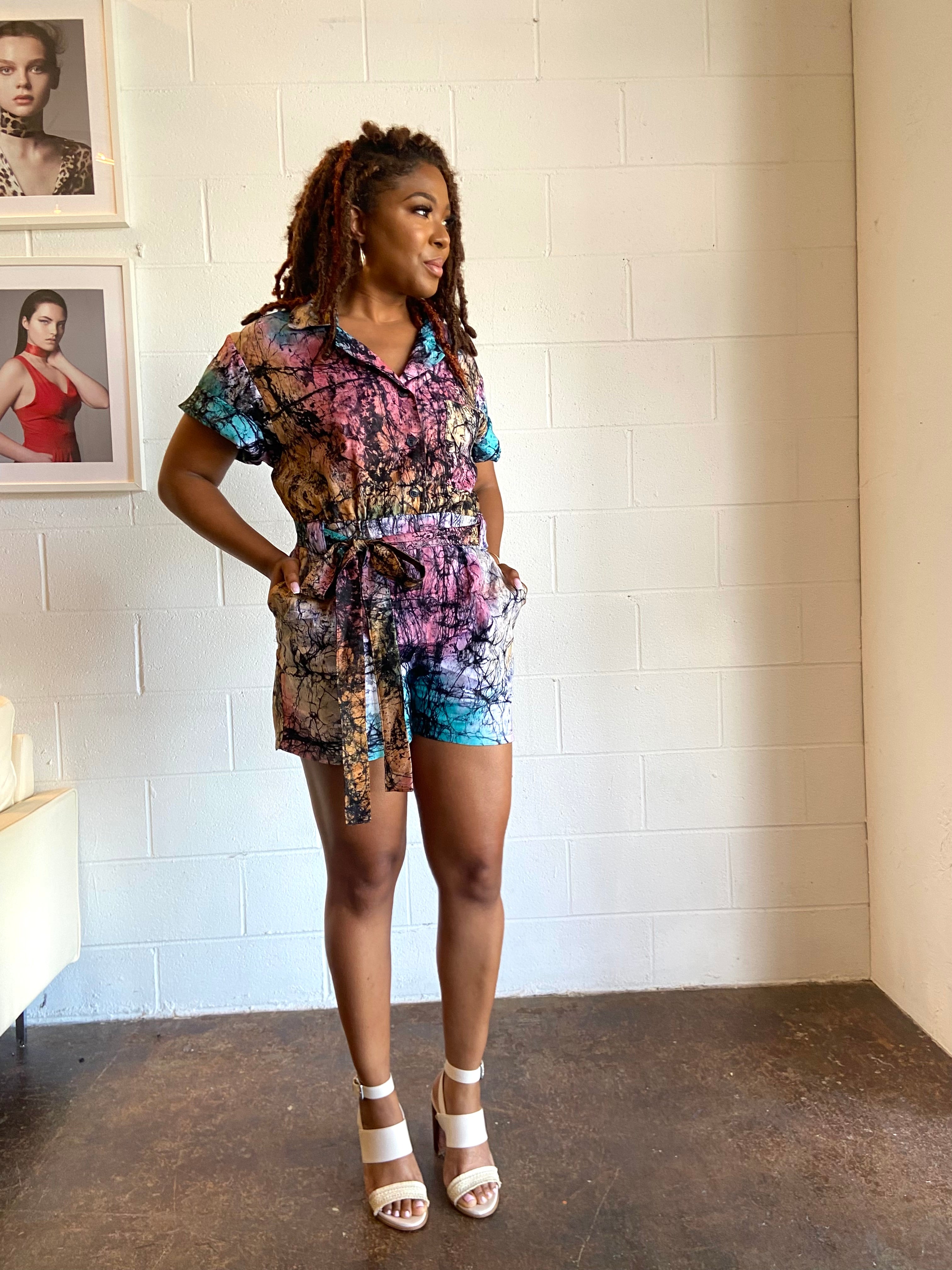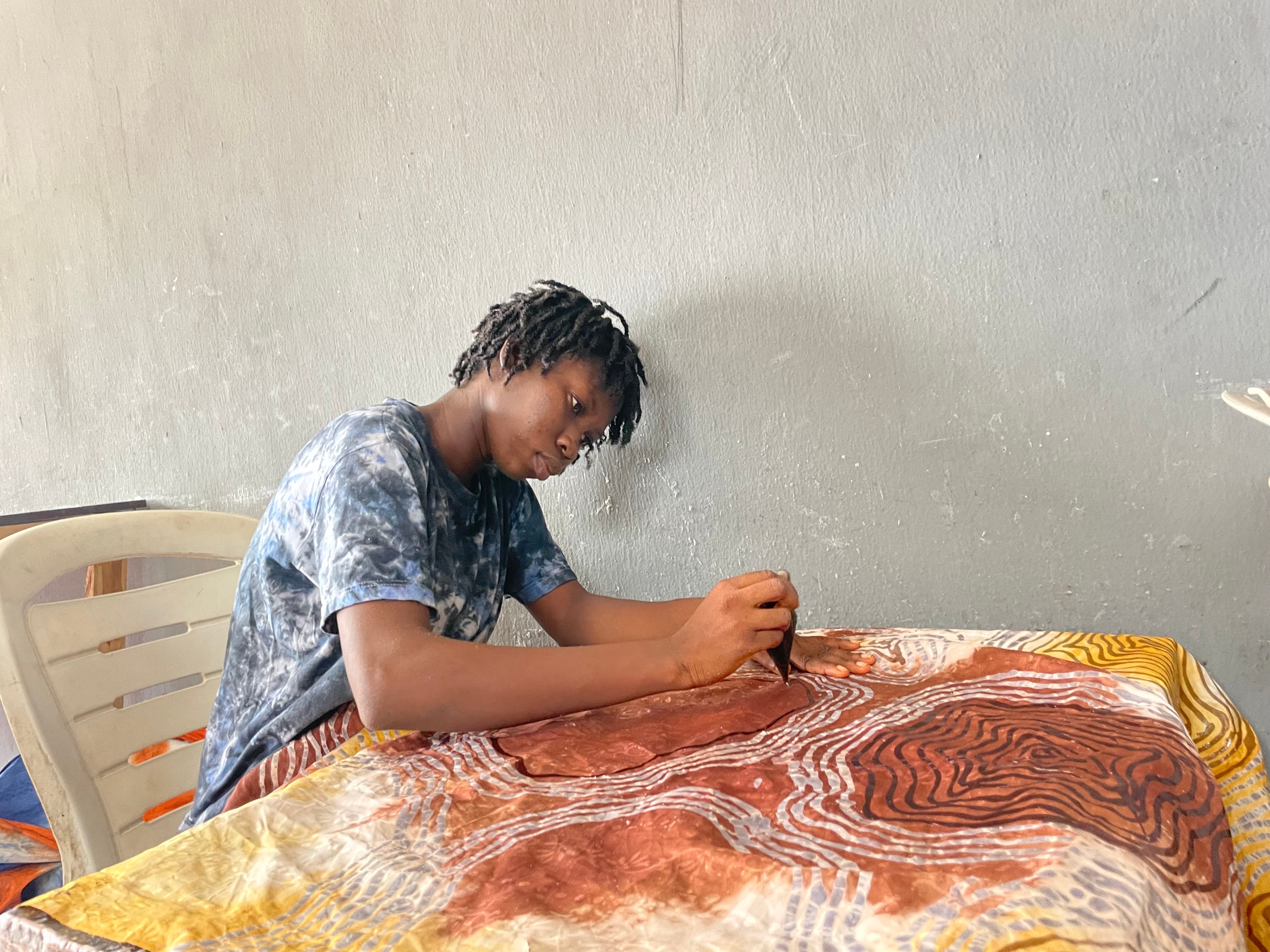
We are partnered with a women-owned, local Nigerian business to source our hand-dyed textiles (Adire). They train young men and women in the art of creating Adire, giving them valuable skills and career opportunities.
They help us source the high-quality, authentic African print cotton fabrics that we use to create suakoko betty looks. Producing our garments locally in West Africa supports our mission of making an economic impact on the communities that are the source of our inspiration and the birthplace of suakoko betty itself.
ABOUT OUR FABRICS
Batik is a process of using melted wax as a resist to create a hand printed fabric. The wax may be painted on a white or coloured fabric using a canting or brush or it may be stamped onto the fabric using a copper stamp dipped in melted wax. The fabric is then dyed, and the areas that have been waxed will not be penetrable by the dye.
Adire is a traditional Nigerian textile art form that involves creating intricate patterns on fabric using a resist-dyeing technique. The word "adire" means "tie and dye" in the Yoruba language, and it is commonly associated with the Yoruba people of southwestern Nigeria.
creating adire
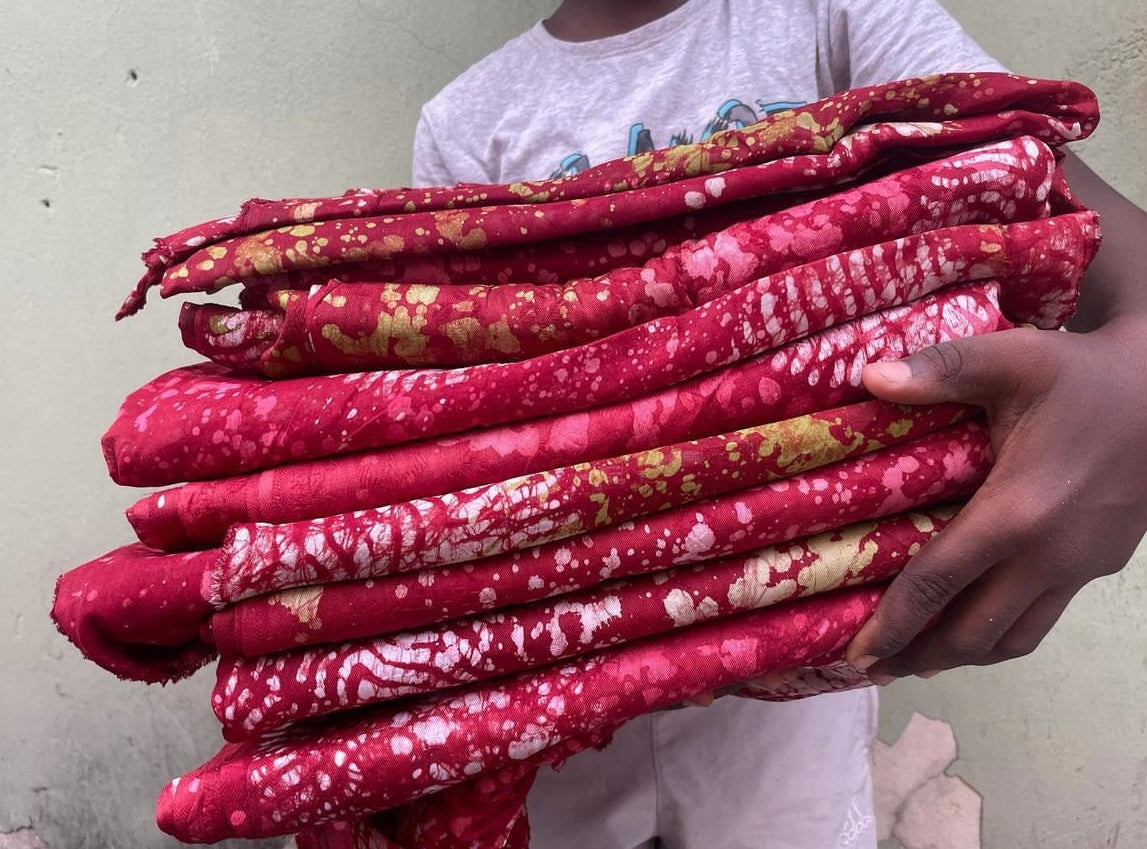
The first step is to prepare the fabric that will be used for Adire. Traditionally, a plain, unbleached cotton fabric is used. The fabric is washed thoroughly to remove any dirt, starch, or sizing agents that may interfere with the dyeing process. After washing, the fabric is left to dry.
Once the fabric is dry, the next step is to design the patterns that will be applied to the fabric. Adire patterns can be created using different techniques, including hand-painting, stencil printing, and tie-dyeing. Each technique produces a unique effect.
Hand-painting: In this method, the desired patterns are painted directly onto the fabric using a special dye-resistant paste. The paste is made by mixing cassava flour or starch with water and applying it to the fabric using a brush or a pen-like tool called "ajanbele" in Yoruba. The paste acts as a resist, preventing the dye from penetrating the fabric in the areas where it is applied.
Stencil printing: Stencils made of cardboard or other materials are used to create repetitive patterns on the fabric. The stencil is placed on the fabric, and the resist paste is applied over it using a brush or sponge. When the stencil is removed, the pattern remains on the fabric, protected from dye penetration.
Tie-dyeing: This method involves tying the fabric tightly with strings or rubber bands to create intricate patterns of folds and pleats. The tied fabric is then dipped into a dye bath, and the areas where the fabric is tightly bound resist the dye, creating unique patterns.
Once the resist paste or tie-dyeing is complete, the fabric is ready for dyeing. Natural dyes made from various plant materials are traditionally used in Adire. Indigo, obtained from the leaves of the indigofera plant, is the most commonly used dye and gives Adire its distinctive blue color. Other natural dyes, such as osun (camwood), ewe aro (baphia nitida), and osè (cassia alata), can be used to create different colors.
The fabric is immersed in the dye bath, and the dye penetrates the areas not protected by the resist paste or ties. The longer the fabric remains in the dye bath, the darker the color will be. After dyeing, the fabric is rinsed thoroughly to remove any excess dye.
Once the fabric has been dyed and rinsed, the next step is to remove the resist paste or untie the fabric if tie-dyeing was used. The fabric is washed and agitated to loosen and remove the resist paste or any remaining ties.
After the resist has been removed, the fabric is washed again to ensure the colors are set and any remaining dye is removed. It is then air-dried or ironed, depending on the desired final appearance.Adire is a labor-intensive process that requires skill and creativity. The resulting fabric showcases vibrant colors and intricate patterns, making it highly valued in Nigerian and international fashion and textile industries.
Khloe Dress - Blueberry
Khloe Dress - Blueberry
1 color available
Fatima Duster - Cobalt/Aqua
Fatima Duster - Cobalt/Aqua
1 color available
Liya Dress - Pink Claw
Liya Dress - Pink Claw
1 color available
Mia Romper
Mia Romper
1 color available

